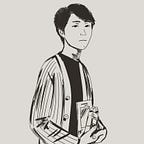The Yuha Archive :: “SONICFOLIO SCORES” Episode 6:: De/Composition and the Sound Event— FIELD NOTES
SONICFOLIO SCORES was a collection of graphic scores jointly produced by The Yuha Archive (Toronto), and The Operating System Liminal Lab (New York). From August 2021- August 2022, eleven graphic scores were produced. Each graphic score endeavored to introduce new perspectives in musical notation and interpretation. The full archive can be found HERE
“DE/Composition and the Sound Event” is the sixth installment of the SONICFOLIO SCORES Project supported by the Operating System & Liminal Lab. To stay up to date with the Yuha Archive SONICFOLIO Series, follow the project on Soundcloud or the Archive’s website. For the introduction to this series here on the OS’ Medium platform, click here.
Sound is our architectural medium from which musical aesthetics are made tangible. Sound bound by virtues of capitalist event and time derives sonic insights specific to an affectual interval or threshold, that continuity refrains organic(s), but an accelerated sequence of anthropocentric-grown isolated ecosystems. A sound event becomes sonic enframing that carries hyper-positive data limited to to narrative or aim, but not a deepening of the interval itself.
Working closely in collaboration with Elæ Moss by virtues of distance and borders (Toronto/Brooklyn), we present a sound event/soundscape score that seeks to redefine the communicative capacity, “agency” within possibilities, and experiments witnessed in our physical spaces, both felt, and communicative, as tangible mitigations that not only seeks to “preserve” sonic data lost within polluted co-habitants but rather, seeking the collaborative allyship framed within an outwardly anthropogenic ecosystem, to find our relationship towards our surroundings and physical spaces in a more resulting means, in contrast to an ends.
The field recordings sampled are site specific, situated in downtown Montreal, in winter, near a park called Beaver Lake, where we documented and collaged samples over the course of a week in subzero temperatures. The sounds presented were sourced with a phone, zoom recorder, and a hydrophone. These devices were used to capture an interplay between publically built and neo-primitive sounds. Neo-primitive sounds include the sounds of footsteps, ice cracking beneath the pond, and vibrational movement in the snow. Publically built sounds include the sounds of car engines, anthropogenic speech, and socially communal activities such as the sounds of hiking. By virtues of the shared capacity within sound events, and the intervallic thresholds that hold one sound event to another dated sound event, we pair these with researched,recycled field recordings that display the sounds of birds domestically found at Beaver lake.
The soundscape/score is a continual extension from the project De/composition and the Sound Event::Forensic Biomimetics for Acoustic Landscape Architecture presented at “New Mimesis: Simulation, Models, Metaphors, and Music,” a symposium of the WinterSound Festival in collaboration with The Orpheus Institute.
“The project builds on research demonstrating both the adverse effect of anthropogenic sound pollution for human and nonhuman actors, as well as the meritorious outcomes of exposure to natural soundscapes, offering interventions for performance, sited installation, and geo-located soundwalks. The ultimate aim of the project is the development of an open-source, user-driven mobile interface for gathering, sharing, and producing bio-mimetic sound experiences for human (and eventually nonhuman) applications.” — Elæ Moss
Elæ Moss is a multimodal artist-researcher, producer, and educator. In 2021, they co-curated [MOVE SEMANTICS]: RULES of UNFOLDING with Jeff Kasper at EFA Project Space in New York, NY. Other recent projects and performances have featured at STWST/Ars Electronica, Usdan Gallery, Judson Church, the Segal Center’s Performing Knowledge Festival, SOHO20, Dixon Place, and the Exponential Festival, among others. They publish and present their work widely across disciplines and mediums, as author, editor, and scholar. Moss is a Professor at Pratt Institute, and the Founder and Creative Director of the Operating System and Liminal Lab.
Find more at https://onlywhatican.net and http://theoperatingsystem.org.
Stanford Cheung engages across a variety of creative hubs as a classical pianist, sonic artist, improvisor, and multi-disciplinary poet. From concerto performances with orchestras, poetry recitals, to electronic free-form improvisation for art installations, Cheung has collaborated internationally with a variety of artists and scholars, including Morgan Fisher, Steven J Fowler, Shahzad Ismaily and Nobuo Kubota. Cheung’s commissioned projects have been exhibited or forthcoming at the 43rd Rhubarb Festival (Buddies in Bad Times), Osaka University OCCA, Edinburgh University, Christchurch University, Banff Centre for the Arts, Orpheus Institute, Kitakyushu Centre for Contemporary Arts, Tokyo Poetry Journal, among others. Presently, Cheung is pursuing his Doctoral degree in music at McGill University where his research is dedicated to the Japanese composer Ryuichi Sakamoto. He runs a multimodal soundscape project called The Yuha Archive.
You can find him here: https://stanfordcheung.com/
